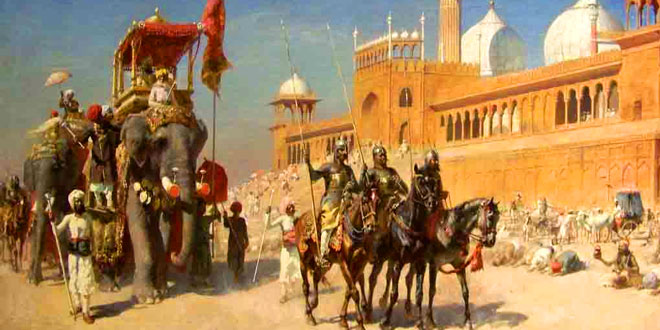Question: How did the British conquer India and establish their rule?
Answer: The British conquered India in the following ways:
- They subjugated local nawabs and rajas.
- They established control over the economy and society collected revenue to meet all their expenses, bought goods they wanted at lower prices and produced crops they needed for export.
- They brought changes in rulers and tastes, customs and practices.
- Thus, they molded everything in their favor and subjugated the country very soon.
Question: How do the official records of the British administration help historians to write about the last 250 years of Indian history?
Answer: The British believed that the act of writing was important. Hence, they got written up every instruction, plan, policy decision, agreement, investigation, etc. They thought that once this was done, things could be properly studied and debated. This conviction produced an administrative culture of memos, noting and reports.
The British were very interested in preserving all important documents and letters. For this, they established record rooms attached to all administrative institutions such as the village tahsildar’s office, the collectorate, law courts etc. They also set up archives and museums to preserve important records.
Letters and memos that moved from one branch of the administration to smother in the early years of the 19th century can still be read in the archives. Historians can also take help from the notes and reports that district officials prepared or the instructions and directives that were sent by officials at the top to the provincial administrators.
Question: How did surveys become important under the colonial administration?
Answer: The British gave much importance to the practice of surveying because they believed that a country had to be properly known before it could be effectively administered. Therefore, they carried out detailed surveys by the early 19th century in order to map the entire country:
- They conducted revenue surveys in villages.
- They made efforts to know the topography, the soil quality, the flora, the fauna, the local histories and the cropping pattern.
- They also introduced census operations, held at the interval of every ten years from the end of the 19th century. They prepared detailed records of the number of people in all the provinces of India, noting information on castes, religions and occupation separately.
- The British also carried on several other surveys such as botanical surveys, zoological surveys, archeological surveys, forest surveys, etc. In this way, they gathered all the facts that were essential for administering a country.
Question: Why we try and divide history into different periods?
Answer: We divide history into different periods in an attempt to capture the characteristics of a time, its central features as they appear to us. So the terms through which we periodise that is to demarcate the difference between periods become important. They reflect our ideas about the past. They show how we see the significance of the change from one period to the next.
 Class Notes NCERT Solutions for CBSE Students
Class Notes NCERT Solutions for CBSE Students



It’s very much interested